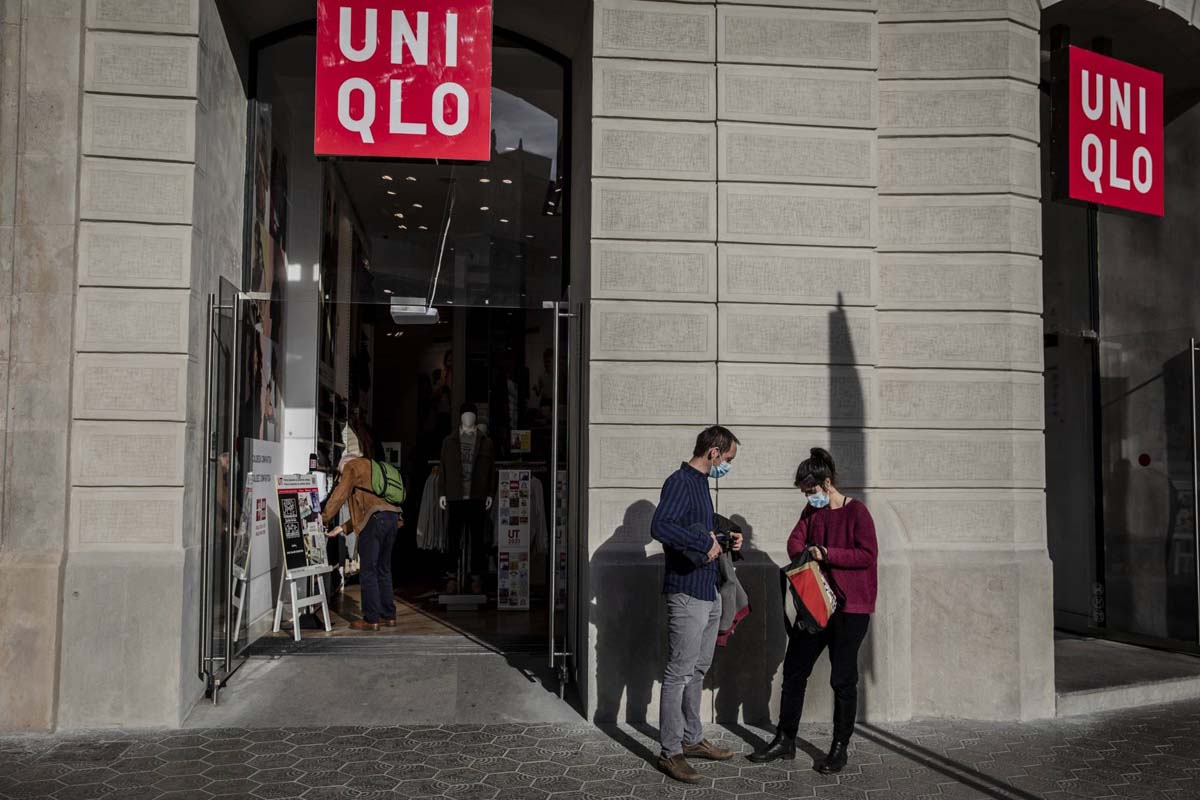
Category: General
Country: Japan
Shoppers outside a Uniqlo clothing store in Barcelona last month | BLOOMBERG
The Japan Times | Jan 4, 2022 | TOKYO (4 p.m.)
Japanese apparel companies are strengthening their efforts to give due consideration to human rights when manufacturing clothes and other products, against the backdrop of forced labor allegations in China's Xinjiang Uyghur autonomous region.
The use of cotton made in the region has been facing criticism, with consumers becoming more sensitive to social issues involving the fashion industry.
Observers have said that the industry is facing the challenge of tackling human rights issues in a responsible manner across its complicated supply chains ranging from raw materials to finished products.
TSI Holdings Co., whose mainstay brands include "nano universe," has already discontinued the use of Xinjiang cotton. Mizuno Corp., a comprehensive producer of sporting goods, decided to switch to the use of replacement materials.
Sanyo Shokai Ltd., a long-established apparel maker, had been using Xinjiang cotton in a small number of products but decided to stop its use starting with products for spring this year. "We judged that risks of human rights abuse cannot be eliminated," a public relations official at Sanyo Shokai said.
Fast Retailing Co., which owns Uniqlo and other clothing brands, aims to establish a system that allows the company to investigate whether there are risks of forced labor throughout the manufacturing process, including the procurement of raw materials.
Some Japanese apparel companies moved to adopt the policy of attaching importance to human rights as they were met scrutiny from consumers and investors domestically and internationally.
At the time of the deadly 2013 collapse of a garment factory building in Bangladesh, poor working conditions at the factory were highlighted as being problematic and led to strong criticism of apparel companies. The tendency of apparel-makers to come under public scrutiny has been reinforced by the suspected forced labor in Xinjiang, a major cotton-producing region.
However, observers said that it is difficult to rule on the legality of the entire process of manufacturing cotton products, which involves a number of stages, including cotton cultivation, spinning and sewing.
"There are limitations in attempts to completely eliminate" the use of Xinjiang cotton, an official from one apparel company said.
In the meantime, efforts to give consideration to human rights have spread to entities having business ties with apparel companies.
Textile maker Teijin Ltd. conducts annual surveys on its business partners in and outside Japan to find out whether there are problems such as child labor. The company has clarified its stance of not becoming involved in human rights abuse, conducting related audits in cooperation with nongovernmental organizations.
Toyoshima & Co., a textile trader based in Nagoya, sells organic cotton made in Turkey, whose entire production process is managed by the company, from farmland to spinning.
"We can offer the benefits of safe and secure products" as all producers involved can be specified under the management system, a Toyoshima official said.
Courtesy: https://www.japantimes.co.jp/news/2022/01/04/business/corporate-business/clothing-uyghur-human-rights/
Copyrights © 2025 GLOBAL TEXTILE SOURCE. All rights reserved.